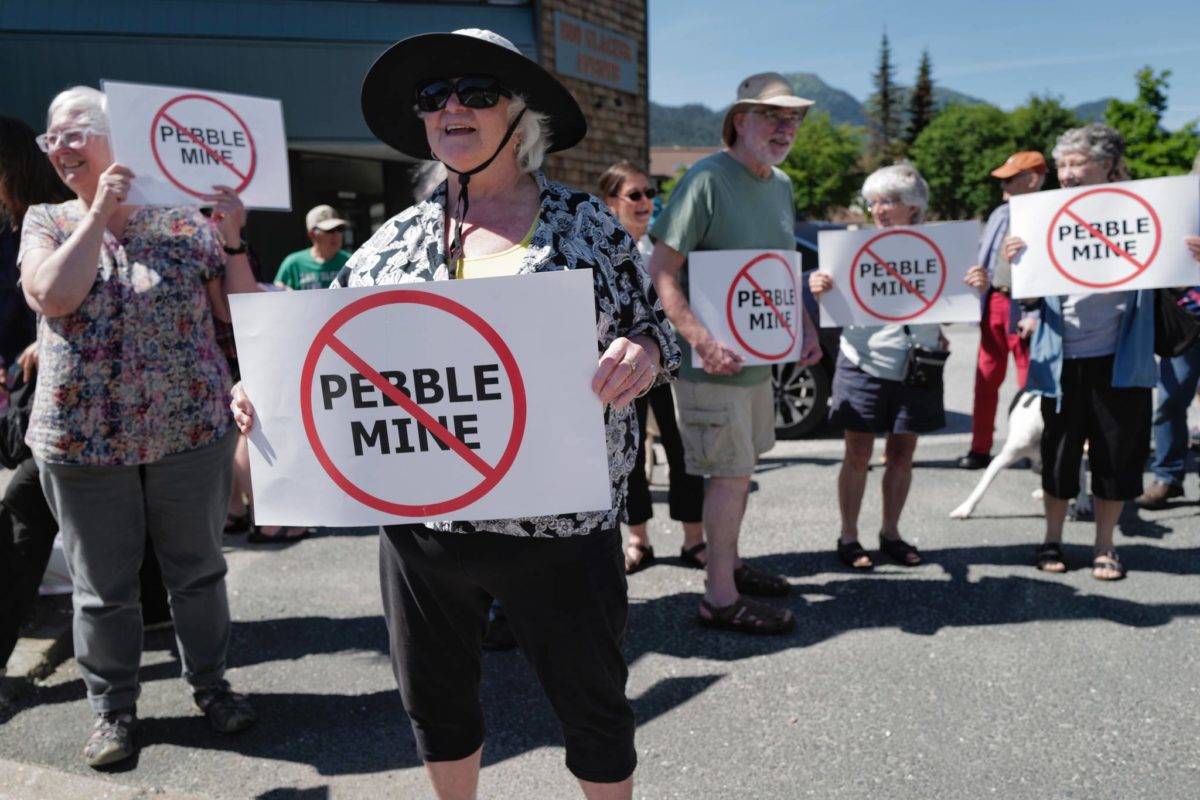By Ray Metcalfe
We residents of the Owner State own the copper and gold in Pebble. Under existing law, we will not be properly paid for the copper and gold we own, and to make matters worse, our bought-and-paid-for governor is conspiring to make sure we never will get paid.
I’ve heard estimates as high as $400 billion in corporate profits if Pebble ever is approved. The problem is we will only get 7% royalty under existing law.
Seven percent might be considered a fair state tax on profits if the extracting contractor were mining land owned by an individual who had agreed to sell the copper and gold to the extractor as it comes from the ground. But that’s not the case. We own it, and we should receive a fair share of net profits.
I’m not suggesting that Pebble should get its permit; I’m saying our Legislature should fix this, so we get paid if it does. If the Legislature waits until Pebbles development is underway, legislators demanding our fair share will be accused of changing the terms after investments have been made.
In 1981, then-Gov. Jay Hammond pushed through an oil tax law designed to force the oil companies to bid what our oil was really worth. It was called “Net Profit Share Leasing.” The oil companies hated it.
Before net profit share, the oil companies viewed us as easily misled country bumpkins who did not know what our oil was worth. Only seven net profit share leases were let, and every one of them brought eye-popping bids. My recollection is that Gov. Hammond was the only governor who made use of net profit bids.
To simplify net profit share leasing, the extracting contractor would likely be promised a share of anticipated future profits, sufficient to warrant the risk of loss that comes with exploration and startup. (Maybe a 100% return on their exploration and startup investment.)
Example: The contractor invests $1 billion in their first year, starting production at the beginning of year two. In year two, the oil, or gold and copper mine, produces gross revenues sufficient to cover all of the second year operating costs plus put $3 billion in the bank.
The contractor gets his billion dollars back, plus all expenses, plus another billion, equaling a 100% return on the original risk money. That’s a phenomenal investment in anybody’s book.
Once the extraction contractor has been properly compensated for the risks of exploration and startup, any number of companies would be happy to operate the mine for costs plus 20%. Any profits above fair payment to the mining operators should belong to Alaska.
The best known net profit share oil lease let was the Northstar Lease. To participate, bidders were required to bring a cashier’s check in the amount of $25 million, and give it to the state if they won. The Northstar lease had a 20% royalty. Otherwise, it promised bidders the lion’s share of the net production revenue until all costs were recovered and a pre-agreed generous reward for exploration risks had been paid.
The bid variable was “when the payback and the pre-agreed reward has been reached; from that day forward, how will you share the net profits with the state?”
Amerada Hess bid that they would give Alaska 89% of the net profits and keep 11% as payment for their production services. Six more fields were let on net profit share leases. Bottom line, 11% of net to the producer and 89% of net to the owner was, and is to this day, world market.
Unfortunately, multimillion-dollar “don’t tax oil” campaigns, campaign contributions from oil interests and outright bribes have left Alaska a lot closer to 11% to the state and 89% to the oil companies. This table turning trick is why the state is broke.
Year after year, ConocoPhillips reports profits equaling over 100% of costs for their Alaska production services, the same services that Amerada Hess offered to provide for 11% of net. ARCO, now owned by ConocoPhillips, was well compensated in the 1980s for the risks they took. Today, Prudhoe is a seasoned field, and there is no risk. If we could rebid Prudhoe, any number of capable companies would offer us terms similar to what Amerada Hess offered us on Northstar.
If there is $400 billion to be had from Pebble, we will get a paltry $28 billion under existing law when we should be getting at least $300 of the $400 billion. The $100 billion left over is more than fair pay for extraction services.
Gov. Dunleavy is not only promoting the Pebble mine, he is also proposing a constitutional amendment that would require voter approval of any proposal to bring our mining tax, or our oil tax, in line with the world market. Rest assured, if Gov. Dunleavy gets his amendment, Alaska’s resource extractors will spend whatever it takes to kill future tax proposals.
If we make extractors pay us what our resources are worth, we won’t need the jobs they promise. But not getting Alaska’s fair share is one more good reason to leave Pebble’s gold and copper in the ground.
Ray Metcalfe lives in Anchorage. He is a two-term Alaska state legislator and was the whistleblower who secretly consulted with the FBI for two years as they investigated, prosecuted and convicted six Alaska legislators for taking bribes in exchange for their vote against higher oil taxes. Columns, My Turns and Letters to the Editor represent the view of the author, not the view of the Juneau Empire. Have something to say? Here’s how to submit a My Turn or letter.

